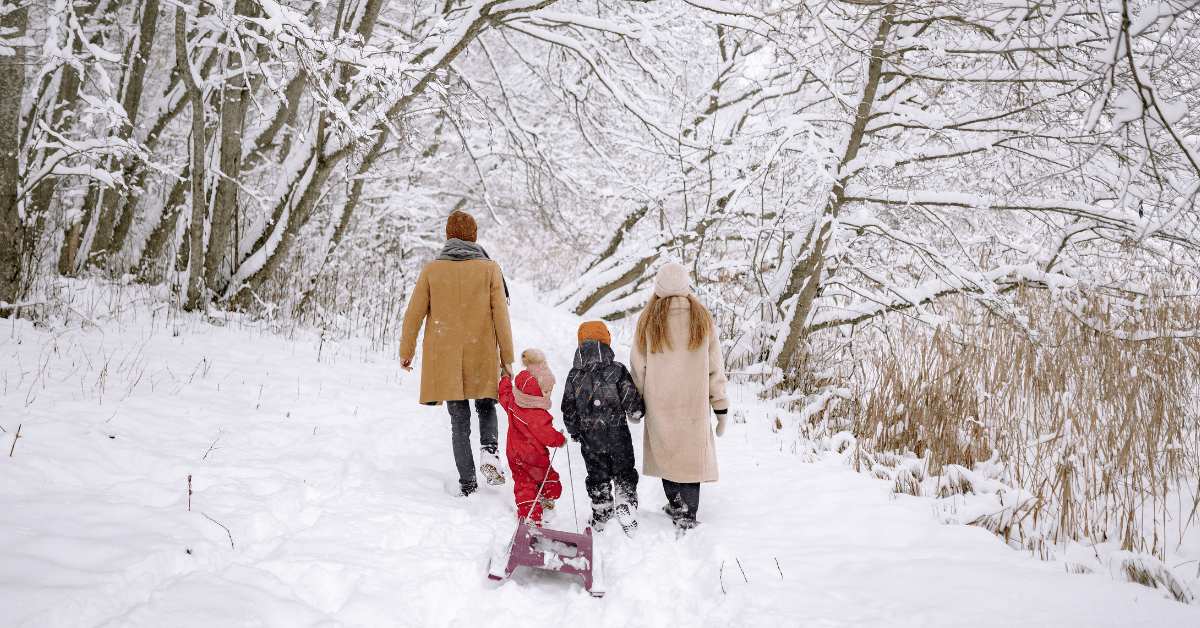Written by Robin Handy, LMSW.
Do you ever feel like your mental health starts declining when the holidays start approaching? If you answered yes to that question, you are not alone!
The holiday blues are exactly what they sound like: feelings of sadness, stress, and anxiety surrounding the holiday season. According to the American Psychological Association, an estimated 44% of women and 33% of men find the holidays to be depressing, stressful, and mentally exhausting.
The holiday season is often referred to as “The Most Wonderful Time of the Year,” however for many people it can be quite the opposite. Some may feel that their loneliness becomes unbearable during this time. It can also be challenging to watch others experience the joys of family and festivities.
In this article, we’ll share some mental health tips for coping with these feelings and creating traditions of your own to preserve your mental wellness. It’s important to note that the holiday blues are usually temporary, but sometimes they can overlap with preexisting mental health diagnoses such as seasonal affective disorder or clinical depression.
Signs, Symptoms, and Triggers of the Holiday Blues
Experiencing the holiday blues can make everything seem dark around you, which is why it’s important to talk to a mental health professional about your symptoms. They can help you navigate through this emotionally turbulent time as well as identify coping strategies that work for you. If you think you or someone in your family might be experiencing the holiday blues, here are a few signs to look for:
- Sleeping more or sleeping less
- Loss of interest in things you usually enjoy
- Feeling like you want to isolate yourself
- Sadness ranging from mild to intense
- Feeling anxious or worried
- An irritable or depressed mood
These feelings may seem like they arrived out of nowhere, but the reality is that there are several unique triggers that may impact your experience of the holiday blues. Here are some of the most common triggers, and coping skills you can use to manage them:
Disappointment Over Unmet Expectations: It’s important to release all the preconceived notions we have in your mind about what the holidays should look like. Start to think of the ways you can choose to celebrate (or not celebrate), based on where you are in your life and what you value.
Loneliness and Isolation: It is not unusual to feel like you want to curl up and be alone when you feel sad or depressed. However, isolating yourself will only make you feel worse, so try to surround yourself with people who love and support you.
Excessive Alcohol and Food Consumption: Seeing others enjoy food and drinks as a part of their holiday festivities can also make you feel this is an appropriate way to fight the blues. You must remember that alcohol is a depressant and will increase your depressive feelings. Overeating will not yield positive results for your mental health, either.
Healthy Ways to Cope with the Holiday Blues
Let’s face it, suffering from the holiday blues is a very challenging and complex thing to have to endure. Here are five tips from a professional of how to build positive coping skills that can help you feel better this holiday season:
- Get Moving: Whether it’s a new workout class, yoga, or dancing around your bedroom, moving your body will definitely lift your mood. Try to get a consistent exercise routine going throughout the holiday season.
- Talk it Out: Part of our mission to stop isolation requires being social. Call up a trusted friend or book a session with a mental health therapist to discuss your sadness in regards to the holidays.
- Create Something: Make something with your hands or finish that DIY project you’ve been putting off forever. Unlocking creativity is a healthy distraction to combat your depression and or anxiety.
- Practice Mindfulness: Be in the moment, acknowledge where you are and how grateful you are to be in the present space. This helps with ruminating in the negative feelings surrounding the holiday season.
- Create New Traditions: Find something you’re passionate about and make it a tradition. Try to pick something you do every holiday season that makes you feel good. It can be as small as re-watching your favorite movies or a community service opportunity where you can volunteer to give back to others.
Just because you feel down during the holidays doesn’t mean you have to stay there. You have people who care about you and professionals who can guide you through.
Most importantly, don’t underestimate your ability to put positive coping skills into action and combat your depressive symptoms during the holidays. Be well and try out a few of these tips that resonate with you the most.
If you or your child needs support this holiday season, reach out to Backpack Healthcare to get matched with a mental health professional at this link.


